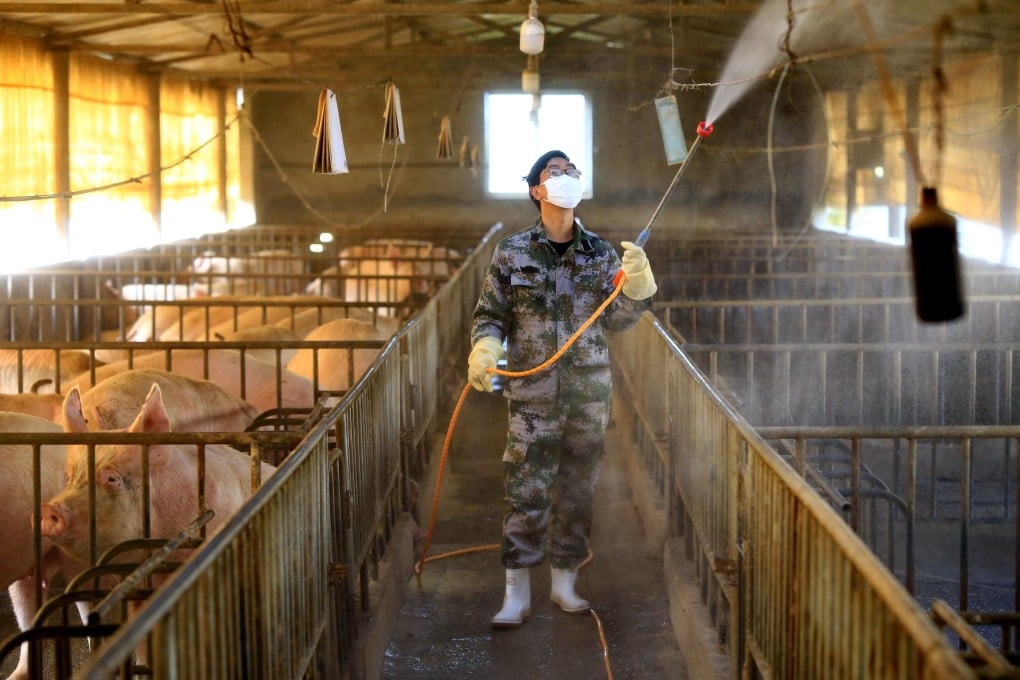African swine fever: China limits live pig shipments to curb outbreaks
- New government zone policy aims to encourage the transport of pork rather than live pigs
- The emergence of new variants risks further spread with farmers unable to detect milder symptoms

On April 29, the northern region of Inner Mongolia reported the country’s 10th sporadic outbreak of African swine fever, a disease that first erupted in China in August 2018.
From May 1, the ministry has brought in a trial control measure preventing hogs, except for breeding pigs and piglets, from being moved outside their zones, a move to encourage the transport of pork rather than live pigs. Five zones were drawn up to control the spread of animal diseases, particularly African swine fever, which is deadly for pigs but not harmful to humans.
Specialist pig veterinary consultant Steven McOrist said the disease had been the most serious problem for China’s hog industry for 50 years, wiping out an estimated half of its pig population in the early days.
